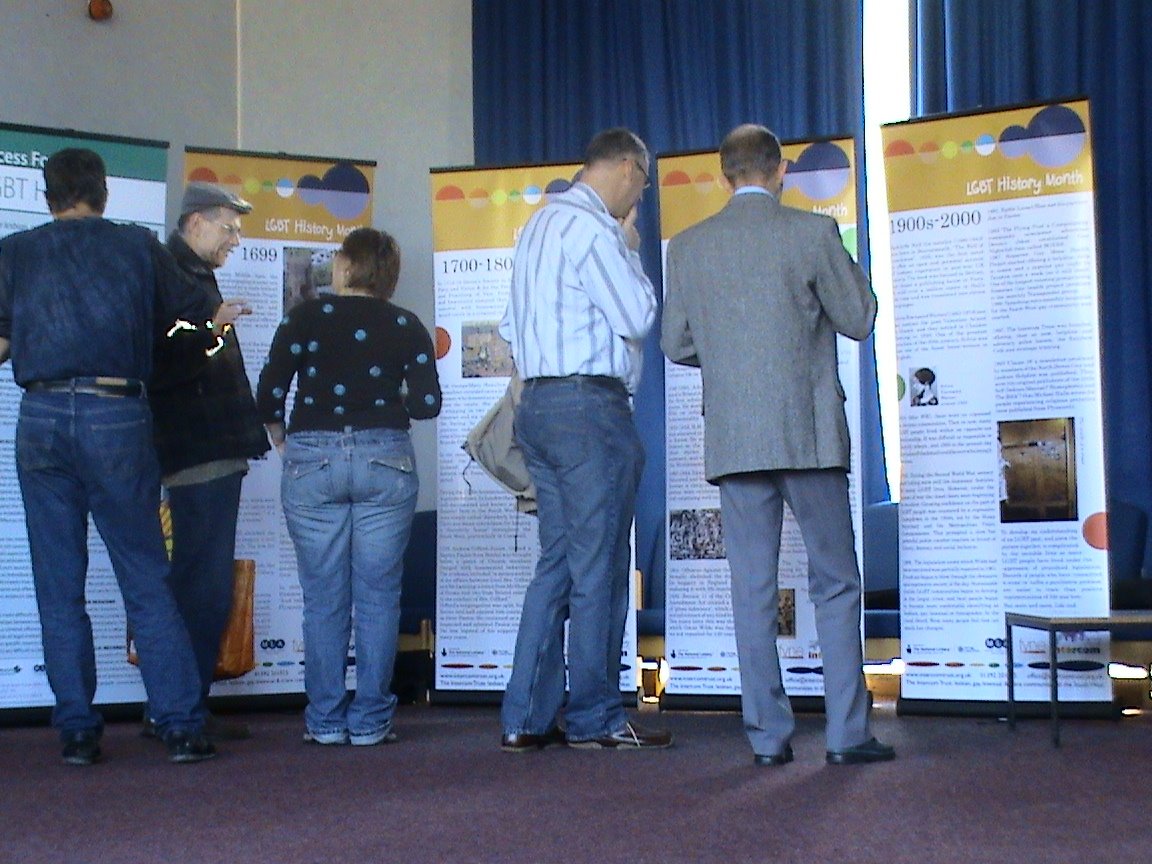“Whatever our alignment and affiliations history is always a useful tool to have when defining ourselves in the world...the denial of history has always been to some extent part of the oppression or marginalisation of groups and the reclaiming or rewriting of history has always been part of their liberation or self-realisation."
Culture warsWithout the earlier subculture of queer politics, gay and lesbian and feminist activists who in the early stages of feminist and sexual politics, built their own networks and communities there would be little to say about LGBT culture.
It was these networks, which were able to respond to the catastrophe of AIDS. With grassroots self help projects, safer sex campaigns, lobbying and fund raising, when HIV/AIDS struck the United kingdom and the western male gay community-to the early indifference of much of the wider society.
There are now more sexual identities and subcultures visible and active in public culture, it is important to remember that alongside popular fascination with gender and sexual diversity, challenges to conservative traditions remain vigorously policed and punished. From epidemic hate crimes against LGB and T people to media fears of the consequences of women’s greater sexual autonomy, and family values which uphold the heterosexual norm.
How is it best to view the culture wars? The apparent rigidity of gender symbolism of the ‘sex act’ remains one of the key factors which can rob women of their personal sexual freedom to choose an identity and autonomy, while at the same time continuing to confirm men’s sexual conformity to masculinity.
Contemporary culture over the last one hundred years has been accompanied by ever greater social acceptance of diversity although this is still seen through the tradition of masculinity and femininity. There has been an expansion in mainstream culture and the promotion of choice as the overriding route to happiness, (in women’s magazines, advice columns, contemporary fiction, film and television). The battle is still open. Funding has been reduced or removed from gay community groups, LGB and T helplines are closing down due to lack of funding, often found previously from health authorities even through HIV infection continues to rise.
Histories
There is a national attempt to recover and rewrite history. The political declaration of an LGB and T identity requires authenticity through reclaiming one’s history.
The Heritage industry seems to create only one version of a twentieth century identity. Putting Lesbian, gay, bisexual and transgender histories at the centre of ‘our’ representation of history we seek to speak for a history and culture which is specific.
We may choose to offer a shared history of our cultural identities which have been and continue to be reflected in a common historical experience and shared cultural codes. (Dress, language, attitudes, etc) which offer us a meaning and identity.
Heterosexuality has been able to, by merely holding back a people’s past, keep a grip on its power and normality. It turns to the past and distorts, disfigures and destroys references to a heritage that goes back millennia. Cultural identity belongs as much to the past as it does to the future; it is a matter of becoming as well as being. We can use this as a step to understanding how ‘we’ have experienced repression and normalization in a heterosexist cultural backdrop.
In order to challenge hostile claims that homosexuality is abnormal or immoral historical experiences of similarities show that being LGB or T is a ‘given’ and has roots in history.
LGBT History month now in its fourth year offers a standard of cultural and historic exposure. Until we can show our cultural and historic roots, be able to unearth the heritage which we know we have and express that through representation and exhibition, we stand the chance of being singled out for criticism and invisibility in the way we have for hundreds of years to come.
The discovery of, and visibility of our histories, will have psychological benefits to many LGB and T people who still feel a sense of isolation and oppression. Our oppression has changed little, with a greater awareness and understanding of our changing identities we offer hope and a cultural foundation on which we can work on to consider our future.
Through the visual representation and celebration of LGBT History we offer a valuable and sustainable method leading, empowering and building cohesive communities. We have a foundation on which to enable LGB and T communities to face real issues; deal with problems and realise aspirations in an effective way. This involves working in partnership with local people and organizations to create a meaningful, shared vision for the future and then making it happen. In our complex and diverse communities this will never be straight forward, however the results can be rewarding.
The Intercom Trust: supporting lesbian gay bisexual & trans people & communities in the South WestRegistered Charity 1072772
Sarah StephensonLGBT Heritage Project Co-ordinator
sarah@intercomtrust.org.uk www.intercomtrust.org.ukPO Box 285 Exeter EX4 3ZT
01392 201015 (Main Office)
07875 183508 (LGBT Heritage Mobile)
01392 20 16 30 fax




